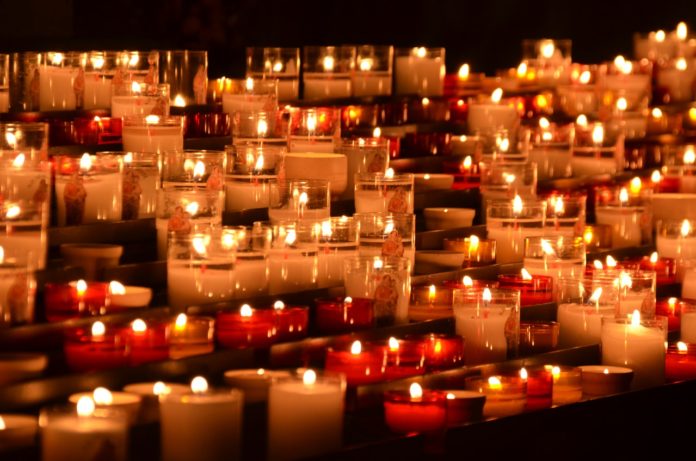Grief is something you don’t overcome. These last two years we have witnessed death at unprecedented levels. The pandemic has caused us to live through a constant state of funerals, and a broken record of condolence messages. We are mourning people behind computer and mobile screens every day. So what happens when our “internet” friends die? The pandemic has made me think about my own mortality, and the countless people I know virtually. Who will notify them and how should I plan for this? writes LING SHEPHERD.
Read more
Covid-19: How survivors’ guilt might be affecting you
A few months ago I was with a friend when she got the call that her aunt had passed away. It was heartbreaking as we made our way home. She spent the entire drive calling everyone to give them the sad news. Her heart was breaking with each call. But she got home and could be in the physical presence of her family.
We know how a “normal” funeral goes. You get the dood tyding, and you immediately make your way over to the home of the deceased. There is tea, coffee and some biscuits. We gather in the lounge, a prayer is said and we sit. The family meets with the undertakers and plans the funeral. There are hugs and embraces and we can wipe each other’s tears and laugh about memories in each other’s faces.
It is this “communion” that is missing when someone dies we only knew from an “online” friendship. But the impact is the same – it is no less.The value we attach to our online relationships are the same. The emotions behind them are tangible. I sat and cried about someone last week after hearing of their passing. We shared banter and a few DM’s here and there. We had never met but I knew them through the screen. The laughter was real and so were the discussions. Their death is real and I am mourning them.
Nowadays funerals are streamed because of the limits placed on the gatherings, and more so when that person was prominent in social media spaces. The families of the dead leave behind plans for funerals and tributes.
But how can we involve our online communities?
I think the first arrangement would be to entrust someone with your social media account passwords. The most important thing is to openly communicate about your online friends. Everyone at home hears me speak about “my online friends”. I know this feels like morbid subject matter, but it’s no different to paying that monthly funeral policy. I’m considering drawing up a document to state what should be done in the event of my death about the online spaces I occupy.
Read more: Under The Eyes Of COVID-19: Grief And Otherness
The practical steps I have thought about would be to talk to my virtual friends about it. Give them a family member’s contact details. We have been witnessing so many online death notices weeks after the fact. We have no one to call or message to send condolences, but end up putting up a post in tribute. This is where things feel impersonal.
Owning the grief takes on a new level because that physical communion is gone. It is even worse to reach out to families who weren’t aware of you and your friendships. With all relationships, communication is key. We should communicate about everything, especially when the relationship is significant.
Facebook and Instagram have a legacy feature in the event of your death. A legacy contact is someone you choose to look after your account if it’s memorialised. If you add a legacy contact, that person can make decisions about your account once it’s memorialised.
Read more: How to access mental health resources online
I have come to learn there is no longer a digital divide between friendship. Those fibre lines and internet connectivity that keep friendships open is merely a conduit. I am friends with people online that I would want to see offline as often as possible. Friendship is friendship, with or without bandwidth.
Mourning is personal. To be a friend is to have a friend, and I will take it in any form.









